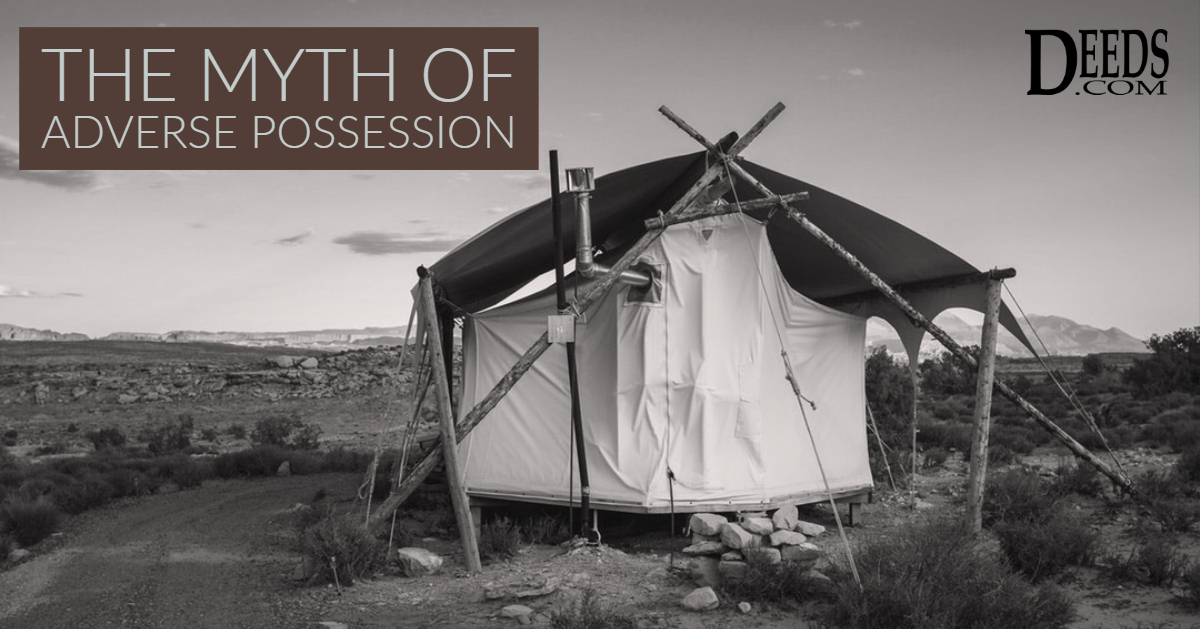
It’s not rare to read about people using—or trying to use—squatter’s rights and the property doctrine of adverse possession in order to legally take title to and possession of an abandoned home. Some of these attempts have even been successful, if only for a short while. It happens often enough to warrant discussion, but it could also be that these stories are the stuff of urban legend, or maybe their occurrence is simply few and far between.
Although many use the terms adverse possession and squatters rights in conjunction, adverse possession does not, in fact, establish squatters’ rights. However, squatters’ rights are considered a form of adverse possession. This property doctrine was initially established to handle disputes arising from real estate deeds and boundary line issues, but is increasingly being used to establish residency.
In 2010 in Flower Mound, Texas, Kenneth Robinson took possession of an abandoned home in an upscale neighborhood. He put the utilities in his name, maintained the property, and stayed there rent-free for eight months until he left on his own after the courts intervened and the original lender began foreclosure proceedings. The police had tried to intervene at the request of neighbors, but could not arrest him because it was a civil matter. During those eight months, Robinson paid a one-time fee of $16 to record an affidavit of adverse possession at the county recorder of deeds. It should come as no surprise that such a bargain did not last.
Some people who have attempted to take ownership via adverse possession will pose as landlords and collect money from unsuspecting tenants. After collecting the first and last month’s rent, the fake landlord generally disappears, leaving the tenants to deal with the authorities. This probably happens more often than squatters taking possession of a home. In response to situations like this, Realtors have begun to protect their listings from squatters or unscrupulous scam artists. Dave Madam, a Realtor in Nevada said that he checks on his properties weekly. If there are problems or suspicions, he checks on the property more often. Some Realtors in his area, Madam says, have installed security systems to ward off theft.
Generally, the doctrine of adverse possession is applied more successfully than squatters’ rights are. This is reasonable, given that adverse possession was originally intended to handle property and boundary disputes.
There are four basic tenets to adverse possession. The laws differ in every state, but the basics are the same:
- Hostile (or adverse) possession. Hostile does not mean antagonistic in this case, but rather that a trespasser is knowingly trespassing. In some states, the trespasser does not even have to be aware that the land belongs to someone else. In those states, “hostile,” as it relates to adverse possession, simply means occupation of the land. Incorrect deeds or inaccurately drawn boundary lines can result in “good faith mistakes” in some states if the trespasser thought that being on the land was within his rights. If the owner is aware that someone is trespassing and tells them as such, then the occupant is no longer considered to be in hostile possession.
- Actual possession. Actual possession means that the trespasser lives on the property and treats it as if it were his own, maintaining it and doing basic upkeep.
- Open and notorious possession. This means that it must be obvious that the trespasser is living on the land and maintaining it. It must be clear that the home is his/her primary residence. In the case of a boundary dispute, it must be clear that the occupant is using the land and maintaining it.
- Exclusive and continuous. This means that the trespasser must occupy the land without interruption for a statutorily defined period of time. In some states, it can take twenty years for adverse possession laws to take effect, but in other states it is only seven years.
In order for Kenneth Robinson in Texas to gain legal title through adverse possession to the property in Flower Mound, he would have had to stay there for 10 years under Texas law.
Acquiring a home through adverse possession, whether it is your own that is being foreclosed or is an abandoned home, is difficult because of the statutorily defined period of stay. There’s a chance that a foreclosed home could fall through the cracks and get lost in the paperwork, but it’s hard to imagine that foreclosure proceedings would be delayed for seven years or more.
Basically, the popular idea that someone could go into another’s home or into a foreclosed home, lay down stakes, and claim the home as their own is far-fetched. Although a loophole in the adverse possession laws technically allow for it, this type of arrangement is mostly a myth.
